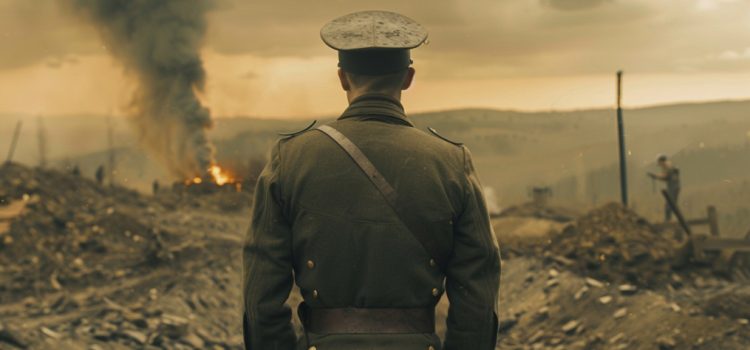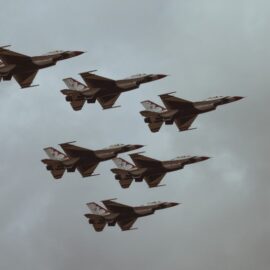
Have you ever wondered about the true nature of war? What if someone told you it’s all a big racket?
In War Is a Racket, General Smedley Butler exposes the hidden motives behind military conflicts. He argues that wars often benefit a select few at the expense of many.
Continue reading to learn about the disturbing realities Butler exposes regarding the military-industrial complex and for his proposed changes to how wars are conducted.
What General Smedley Butler Experienced
During his time in the military, General Smedley Butler started to have doubts and ultimately came to understand that conflicts are frequently orchestrated for the gain of capitalists and imperialists. He compares his function to being an enforcer for major corporations, the banking industry, and financial entities.
During his military career, he noted that the increasing covert activities of the Navy often incited conflicts instead of preventing them. The instances cited, such as the extensive use of aircraft in operations in the vicinity of the central Pacific atolls, indicate a move towards a more assertive maritime tactical approach.
Butler candidly recounts his involvement in various international missions which were designed to expand and solidify American business interests, as opposed to focusing on the nation’s defensive requirements. He demonstrates that his global influence in promoting capitalist goals is akin to the local supremacy of a gangster like Al Capone, covering endeavors from oil operations in Mexico to ventures motivated by profit in the Caribbean, and supporting agricultural initiatives in Honduras.To sum up, the examination of military conflict from the perspective of an ex-military leader exposes it as a strategy that financially benefits a small elite at the expense of the many. Butler reveals the stark disparity between the romanticized image of conflict and the lucrative reality that enriches a small elite.
How Butler Would Change the Way We Fight Wars
Butler’s work conveys a deep condemnation of military hostilities and a sincere plea for their complete abolition. He fundamentally condemns war, viewing it as an unethical enterprise detrimental to ordinary individuals.
Overhaul the Military-Industrial Complex
Butler scrutinizes the beneficiaries of warfare, contesting the idea that military forces are predominantly defensive and suggesting that their operations are mostly aggressive. This is at odds with the proclaimed principles of a military dedicated to protective strategies. Reflecting on their time in the armed forces, they come to understand that their duties were intricately linked to a system that, in the end, predominantly benefited capitalist corporations.
Butler vehemently criticizes the deployment of the National Guard in labor disputes throughout the New Deal era. The claim is that the business elite, by exerting influence over the security forces, have aggressively suppressed U.S. workers’ attempts to obtain a fairer portion of the earnings. The claim is that operations carried out by the National Guard, which is under federal command, might diverge from the broader interests of the general populace, including the hometowns of its members.
Butler expresses profound admiration for the ordinary soldiers and non-commissioned officers in all branches of the armed forces, while he articulates disapproval of the direction and supervision emanating from those with traditionalist views. The commanders who issue directives are accountable for the utilization of the National Guard in quelling American laborers.
Only Play Defense
Butler advocates for a fundamental transformation in the military’s strategic stance, focusing solely on defensive strategies. They underscore that the foremost duty of military personnel is to protect, making it clear that their function isn’t to impose their will on the policies of other countries or their own, nor to dominate other peoples. The viewpoint they uphold criticizes the frequent misuse of armed forces for personal advantage, condemning it as a strategy for certain factions to increase their influence and control, while citing the actions of figures such as General Douglas MacArthur and the military’s influence on policy-making.
The analysis further explores how naval military powers often strive to dominate in Central America and participate in worldwide contests to achieve maritime dominance. Butler highlights the threats to peace and welfare unless a new naval policy is adopted that divorces the Navy from politics and dissociates it from money-making enterprises. This implies advocating for a fundamental transformation and realignment of the defense industry to adhere strictly to the principles of genuine defense.






